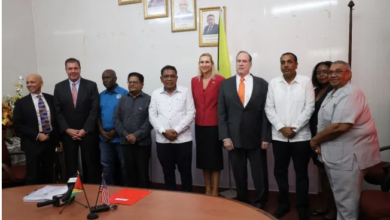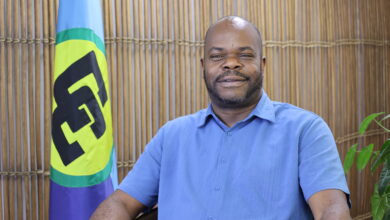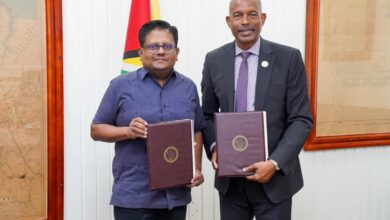A major deliverable of the Special Ministerial Taskforce on Food Production and Food Security (MTF) is to assist with the de-risking of the sector through the provision of agricultural insurance for farmers within the CARICOM Region. It has truly been a long, but rewarding effort from all who have been involved in the process which has led us to where we are today. This is a significant milestone in our regional development. – Mr. Joseph Cox, CARICOM Assistant Secretary-General, Economic Integration, Innovation and Development
I am delighted to take part in the inaugural event of the Regional Economic Agricultural Insurance Programme (REAP), marking the introduction of a private sector driven agriculture insurance initiative for the Region. I applaud Barbados, Dominica, Guyana, Saint Kitts and Nevis, Saint Lucia, and Saint Vincent and the Grenadines for their pioneering participation in this initial phase. Special congratulations go to the Ministerial Taskforce on Food and Nutrition Security for their dedication to identifying suitable agricultural insurance schemes, a crucial objective of the 25% by 2025 Initiative. A major deliverable of the Special Ministerial Taskforce on Food Production and Food Security (MTF) is to assist with the de-risking of the sector through the provision of agricultural insurance for farmers within the CARICOM Region. It has truly been a long but rewarding effort from all who have been involved in the process which has led us to where we are today. This is a significant milestone in our regional development.
CARICOM Member States are among the most vulnerable Small Island Developing States (SIDS) whose agriculture sectors remain highly exposed to the effects of climate change. Changes in weather patterns, heavier rainfall and harsher dry seasons among others, continue to have disastrous effects on the agriculture sector output and productivity. If the advent of Hurricane Beryl has taught us anything it is that we must have recovery and resilience plans in place that can respond to the natural disasters and counterbalance GDP losses and the obvious negative impact on the economic livelihood of the people of our Region. One can only reference the devastation caused to Dominica from Hurricane Maria when the country lost 290% of its entire GDP overnight.
In this regard, agriculture insurance plays a vital role for the Caribbean Community (CARICOM) Member States by providing protection against the unpredictable and devastating impacts of climate change on agriculture. As the Caribbean faces more frequent and severe weather-related events, the importance of agriculture insurance in safeguarding farmers’ livelihoods and ensuring food security for the people of the Region grows significantly.
A recent report from the Food and Agriculture Organization highlighted the significant financial losses experienced by developing countries due to crop and livestock production damage. Recognizing the severe effects of natural disasters and climate change, the Region’s initiative aims to enhance food sovereignty and economic resilience by adapting to and mitigating against these impacts. Agriculture insurance programmes are essential in enabling farmers to invest in sustainable and resilient practices, mitigating climate-related risks, and facilitating quick recovery from natural disasters.
Agriculture insurance stands as a key component of CARICOM’s strategy to combat the adverse effects of climate change on agriculture and work towards the targets of the 25% by 2025 Initiative.
Beyond mitigating risks, agriculture insurance programmes can stimulate private sector involvement and cross-border investments in the agricultural sector. By reducing these risks, these programmes attract investments, promote innovation, and support growth in the sector.
The collective commitment of CARICOM Member States to sustainable development and resilience in the face of environmental challenges is exemplified by the launch of this programme. Other Member States are encouraged to join the initiative to maximize its benefits throughout the Community.
The Secretariat pledges its support to the programme and wishes it every success.
As we continue to peel away the various layers of impediments to regional food and nutrition security, this is one of the many success and innovative achievements to come as we march towards the realisation of vision 25 by 2025.
As I said before, this is indeed a substantial effort and a big deal for agriculture and regional food security. The success of the REAP product will lead as a catalyst in de-risking the agriculture sector and create the type of environment towards to the realisation of an even more investor friendly eco-system for regional food and nutrition security. Ladies and Gentlemen, I thank you.
July 26, 2024
Arthur Chung Conference Centre Georgetown, Guyana






